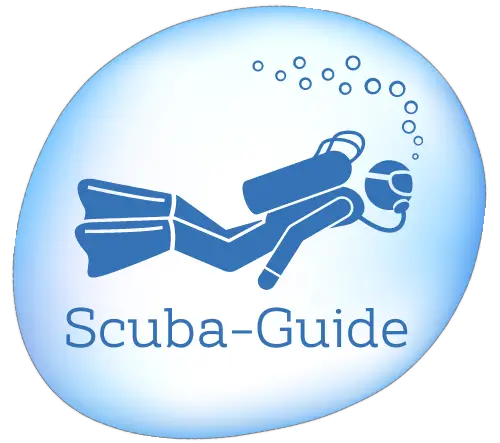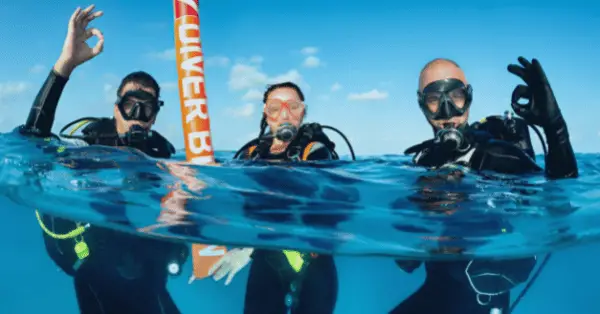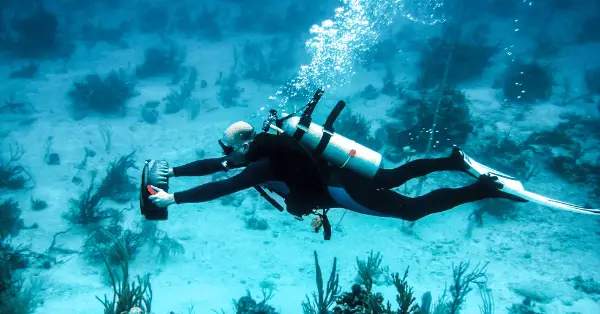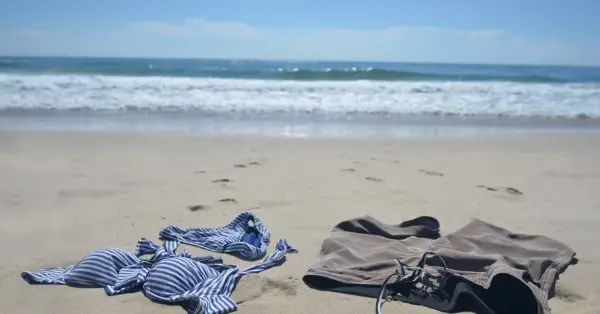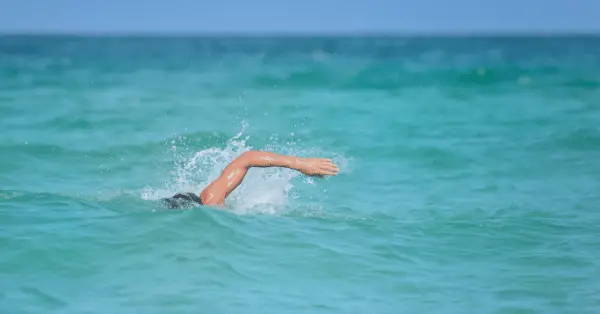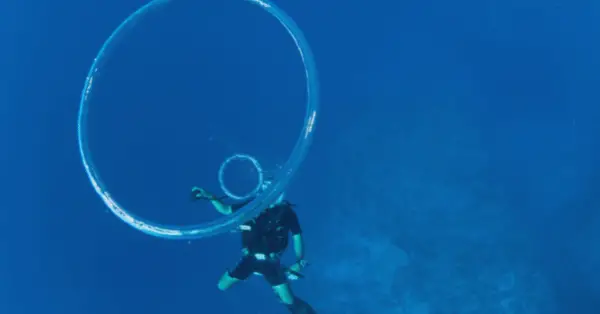20 Dangers of Scuba Diving You Need to Know Before You Take the Plunge
If you’re thinking about scuba diving, it’s important to be aware of the dangers involved. There are many risks associated with scuba diving, and if you’re not prepared for them, they can be deadly. In this blog post, we will discuss 20 of the most dangerous things that can happen while scuba diving. However, in no way, do we intend to scare you – we simply want to increase awareness of some common scuba diving dangers.
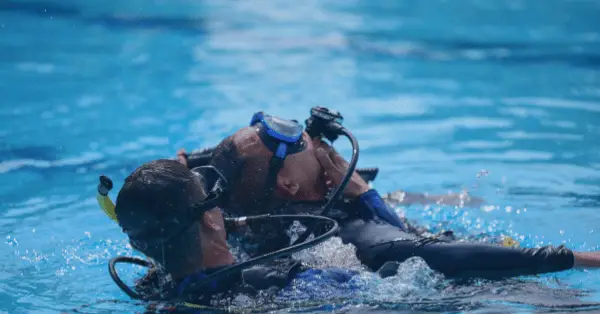
1. Decompression Sickness
Decompression sickness – or also called diving bends – is a common risk associated with scuba diving, as it’s caused by ascending to the surface too quickly after spending time at depth. It can also occur when altering your depth level rapidly. When this happens, nitrogen bubbles form in the body and can cause tissue damage, paralysis, and even death if not properly treated with recompression therapy. In order to prevent decompression sickness, make sure to stay within your depth limits and make sure to fully execute your required safety stops.
2. Nitrogen Narcosis
Also known as “rapture of the deep”, this phenomenon occurs when divers descend too far and are exposed to high levels of nitrogen in their breathing mix. This can create a feeling of intoxication or altered mental state, which can reduce coordination and judgment while underwater.
3. Oxygen Toxicity
Oxygen toxicity occurs when a diver breathes 100% oxygen, or a high partial pressure of oxygen, for too long. This can lead to seizures and permanent brain damage if not treated quickly. Oxygen toxicity is generally only an issue for deep divers who submerge beyond the recreational limits of 130 feet.
4. Pulmonary barotrauma
The sudden change in pressure when a diver ascends too quickly and holds his breath. This can cause an over-pressurization in the lungs and harmful injury.
5. Pressure Injury
Because of changes in air pressure as divers descend, the air spaces inside their body can expand and contract, leading to lung trauma or barotrauma-related injuries such as sinus ruptures and ear infections.
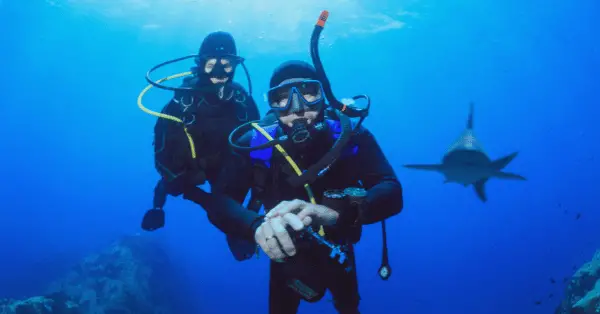
6. Marine Life Hazards
Many marine animals are dangerous and have been known to cause serious injury or death if provoked. This includes jellyfish stings, sea snake bites, and encounters with sharks. So make sure you’re familiar with local marine life before diving in unfamiliar waters.
7. Entanglement
Divers can easily become entangled in coral or debris while underwater, leading to serious injury or even death if they are unable to free themselves.
8. Equipment Malfunction
Properly maintained diving equipment is essential for safe diving, but it can malfunction at any time due to wear and tear. This could lead to drowning or other serious accidents.
9. Cold Shock Response
When a diver surfaces after spending a long time at depth, their body can go into shock from the sudden change in temperature, leading to lost consciousness and drowning if not treated quickly.
10. Hypothermia
Divers can be affected by the cold water of deep dives, making them more susceptible to hypothermia than non-divers. This condition lowers blood pressure and impairs judgment, leading to drowning if not treated quickly.
11. Panic
Many divers experience panic or anxiety while underwater due to unfamiliar surroundings or stressors such as current, darkness, or lack of visibility. This can lead to serious accidents if the diver is unable to stay calm and think clearly.
12. Miscarriage
Pregnant women who scuba dive risk a miscarriage because of an increase in nitrogen levels that can be harmful to the baby.
13. Underwater currents
Divers can get caught in an underwater current that can carry them away from the safety of the dive plan and the rest of the group, and without sufficient air supply, this can lead to serious injury or death.
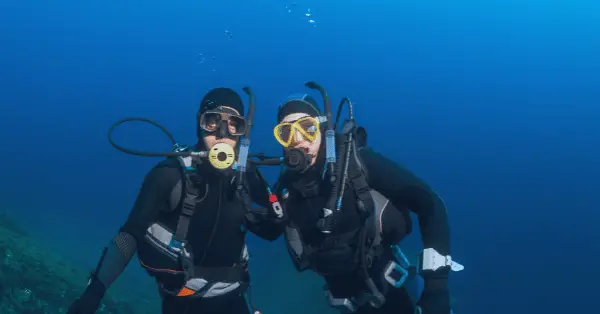
14. Running out of air
Running out of air while underwater is one of the most feared dangers by non-divers. But in fact, it can happen, and that’s why we always check our air pressure levels regularly and stay close to our dive buddy in case we run low air. Running out of breathing gas can lead to drowning if the diver is unable to quickly get to the second stage of her dive buddy or ascend to the surface.
15. Dysbaric Osteonecrosis (DON)
This is a condition that affects deep divers due to tissue damage caused by high-pressure changes. It can lead to joint pain, loss of mobility, and even bone death. DON mostly occurs for technical divers who regularly dive deeper than 100 feet (30 meters) and commercial divers who spend a lot of time underwater at different pressure levels.
16. Getting hit by a boat
Divers can also be at risk of getting hit by a boat, jet ski, or any other type of watercraft. It’s important to always remain visible to operators and stay away from boat traffic lanes. It’s important to try to ascend as close as possible to your planned exit, which should be marked with a diver down flag. Furthermore, it’s also crucial to inflate a surface signal marker.
17. Getting lost
Losing your way or becoming unintentionally separated from your group or dive buddy is a real danger that can occur when diving. To help avoid this, use underwater navigation tools, maintain communication with the group, stay together, and stick to the dive plan.
18. Getting stuck
Getting stuck by definition can only happen in tight places such as caverns or wrecks. Most times this only happens to specialty dives.
19. Going beyond your limits and experiences
It is important to remember that divers should never exceed their personal limits and must not dive beyond the level of their comfort, experience, and training. As you can see, most scuba diving dangers occur because of the wrong equipment (for the situation), misjudging a situation, changing depths levels too quickly, or diving too deep.
20. Wrong equipment
Using the wrong equipment for the dive like the wrong air mixture or using it incorrectly can lead to dangerous situations. Make sure to use proper scuba gear that has been inspected and serviced regularly, and check the condition before each dive. Moreover, it is important that the equipment fits correctly, and all hoses are connected correctly. Conduct a buddy check before your dive. More, wear a wetsuit according to the water temperature.
Conclusion
These are just some of the dangers associated with scuba diving that you need to be aware of before taking the plunge. While these risks should not scare you away from trying scuba diving, they should make you aware that it can be a dangerous activity and proper training and preparation are essential for your safety. Additionally, scuba divers should conduct health checks and stay fit for our beloved sport.
